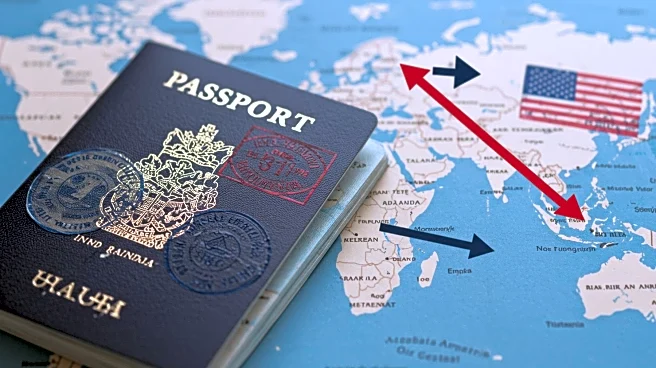What's Happening?
Statistics Canada has released a report indicating a significant decline in Canadian travel to the United States. In July, Canadian resident return trips by automobile to the U.S. decreased by 36.9% compared to the same month in 2024. Similarly, return trips by air from the U.S. fell by 25.8%. This trend marks the seventh consecutive month of reduced automobile travel to the U.S. by Canadians, a pattern that has persisted since President Trump was re-elected. The report also notes a 5.3% decrease in global return trips by air compared to last July. In contrast, U.S. resident trips by automobile to Canada decreased by 7.4%, while global air arrivals to Canada increased by 3.1%, with a slight 0.7% rise in air arrivals by U.S. residents.
Why It's Important?
The decline in Canadian travel to the U.S. could have significant economic implications for both countries. Reduced travel may impact tourism-related industries, including hospitality, retail, and transportation sectors, which rely heavily on cross-border visitors. The decrease in travel could also reflect broader economic or political tensions, potentially affecting bilateral trade and diplomatic relations. Businesses and policymakers in both countries may need to address these challenges to mitigate economic losses and maintain strong cross-border ties. The trend also highlights potential shifts in consumer behavior and travel preferences, possibly influenced by economic conditions or political climates.
What's Next?
If the trend continues, stakeholders in the tourism and travel industries may need to adapt their strategies to attract visitors. This could involve increased marketing efforts or incentives to encourage travel. Additionally, policymakers might explore measures to ease travel restrictions or address underlying issues contributing to the decline. Monitoring future travel data will be crucial to understanding the long-term impacts and developing effective responses. The situation may also prompt discussions on improving bilateral relations to foster a more favorable environment for cross-border travel.









